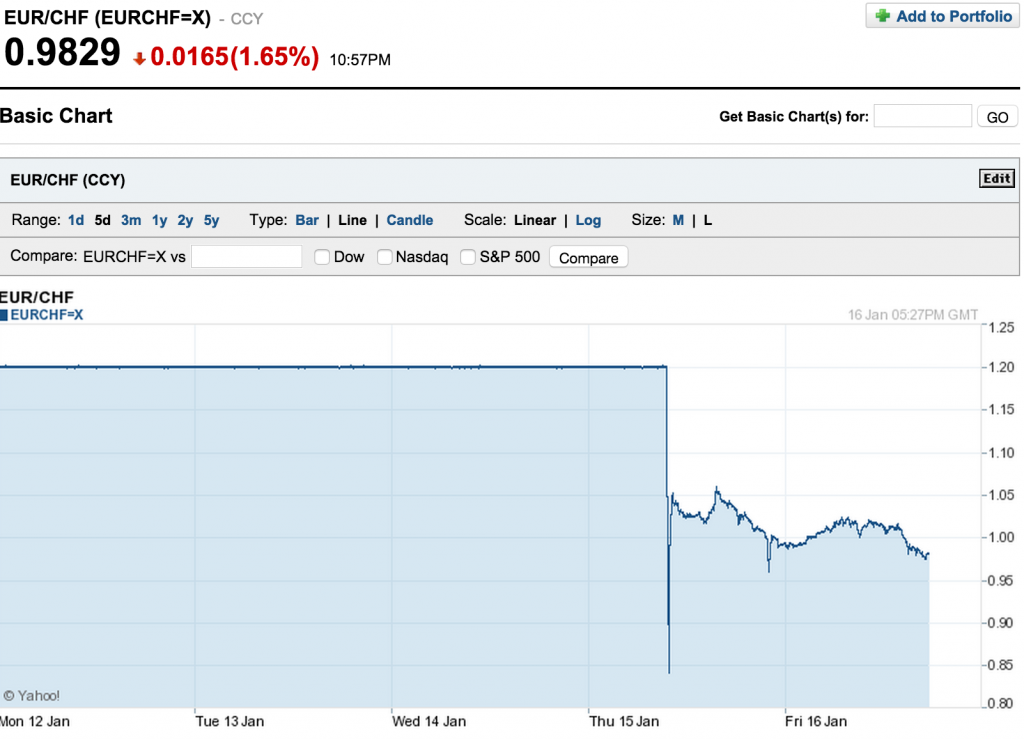Back in 2008, during the CDO/MBS/Lehman/… induced financial crisis (and also a time of domestic political crisis in Pakistan since Musharraf had just resigned), Pakistan set a funny rule – they ruled that stock prices could not fall below a particular limit. So there was no trading, since the crisis meant that no one wanted to buy shares at prevailing prices. And then after a long time the ban got lifted. And shares promptly fell. Check out the graph of the MSCI Index for Pakistan from that time here (from FT):

Sometime back, Switzerland decided that its Franc was appreciating too much and put a ceiling on its price by pegging it to the Euro. The Franc can be worth no more than five-sixth of a Euro, they decreed. And the Franc stayed flat, close to the limit. And then in a sudden move yesterday, following instability in the Eurozone which meant the Euro has been getting considerably weaker, the Swiss National Bank decided that continuing to maintain the peg was costly. And they pulled the plug on the peg (couldn’t resist the alliteration). The graph is here, snapped off Yahoo Finance (took screenshot since I couldn’t figure out how to embed it):

I chose the 5-day chart since on any longer horizon yesterday’s drop was hardly visible. With time, once we have a longer time scale available, we will see that this graph will again start looking like the Pakistan graph.
Thanks to the sudden appreciation in the CHF, there has been bloodbath in the markets. Some FX traders have gone down. Alpari has declared itself insolvent. Global Brokers NZ is closing down. US-based FX trader FXCM is in trouble. And there could be lots of trouble in Poland where people took home loans denominated in CHF (this might sound heartless but such utter stupidity – like taking a home loan in a foreign currency – deserves to be punished).
The broader point I’m trying to make here is a paraphrasing of the old adage “still waters run deep”. When something seems unusually quiet, either held in place unnaturally or even if there is no apparent force holding it in place unnaturally, it is usually a sign that when the floodgates open much will get washed away (apologies for the surfeit of metaphor in this paragraph). When you suppress “local volatility”, the suppressed entropy builds, and when there comes a time that it can be suppressed no more, it acts with such force that there will be much damage.
As Nassim Nicholas Taleb argues in the black swan (link to my paraphrasing of his argument), countries with short-term political instability such as Italy or India or Japan are much less likely to face any major political instability. On the other hand, countries like China, he argues, where small instability has been artificially held down, when instability hits, it will hit in a way that it will hurt real bad.
I’ll end this post with a page from Taleb’s first book Dynamic Hedging, which he tweeted earlier today (I haven’t read it but want to read it but haven’t been able to procure it). Read and enjoy:
